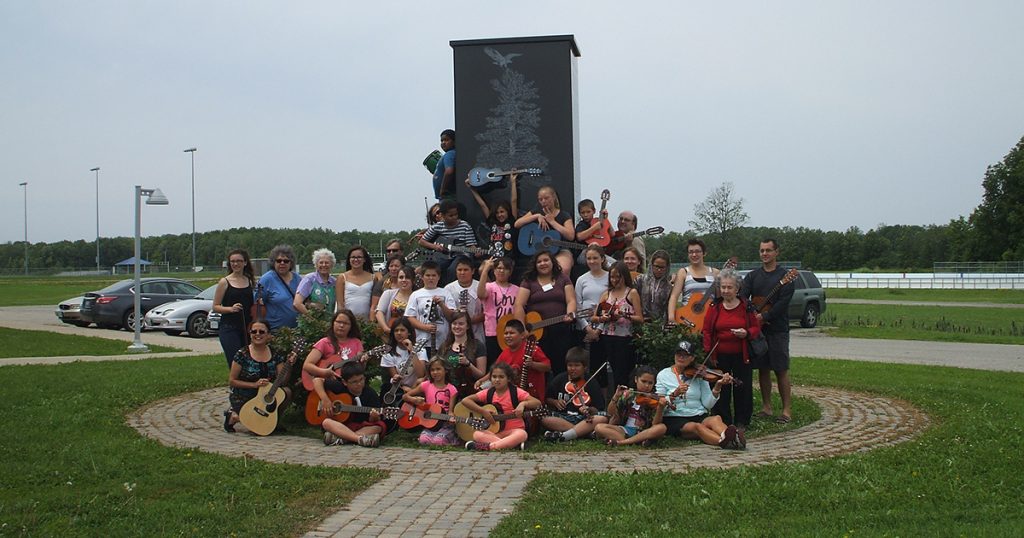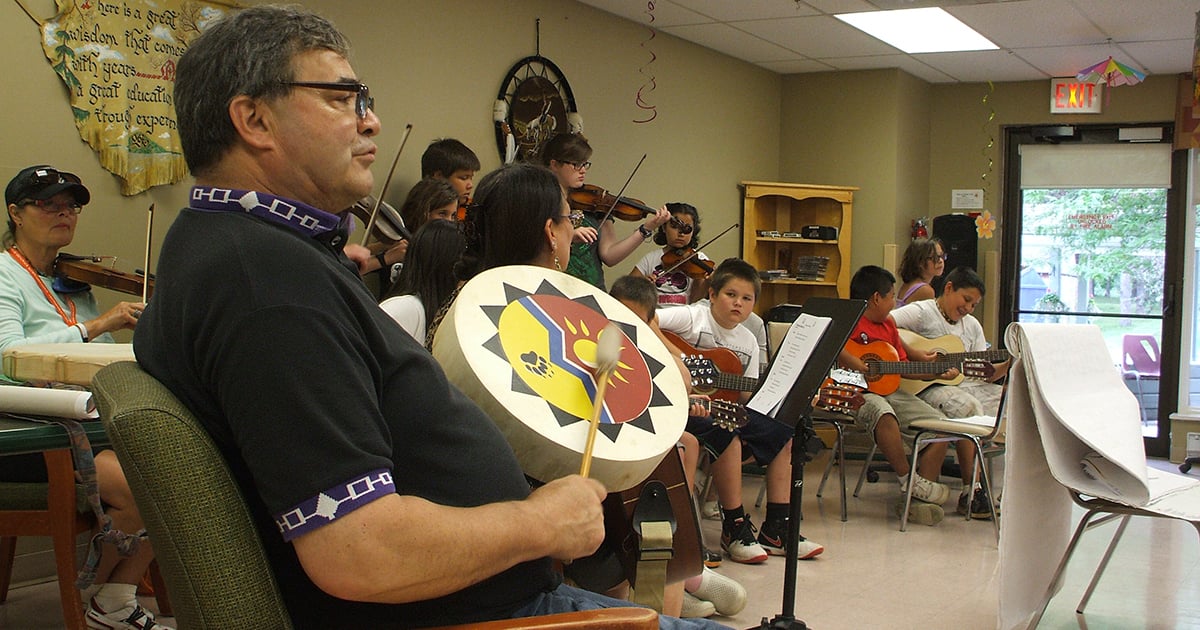The epidemic of suicide casts a shadow over many Indigenous communities across Canada. Young people are particularly at risk, with First Nations youth being five to seven times more likely to take their own lives than non-Indigenous youth, according to Health Canada.
The need to prevent future suicides and to heal grieving communities prompted the establishment of the Suicide Prevention Program within the Anglican Church of Canada. Initially launched by the Council of the North with funds from the Amazing Grace project, and subsequently managed by Indigenous Ministries, the program aims to teach suicide prevention in a manner suited to individual communities and reflective of their cultural and spiritual traditions.
Trained suicide prevention volunteers are a vital component of the program, working to determine which methods of prevention work best in a given context. By purchasing a gift through the 2016 Gifts for Mission gift guide, Canadian Anglicans can help in the battle against suicide and support the work of volunteers. A gift of $400 will cover the housing cost of a trained suicide prevention volunteer for one week to ensure proper mental health resources are available to an Indigenous community, while a $200 gift will cover half their housing cost for one week.
“Suicide is one of the most difficult, compelling, and urgent problems facing our communities today,” National Indigenous Anglican Bishop Mark MacDonald said.
“It robs so many of our communities, not just of young people, but of hope [and] happiness. It’s an ongoing problem … This is one of the most urgent things that we do in terms of our work. We try to get a focus on this because we can see the kind of chaos and mayhem that this causes.”
Over the last several years, suicide prevention volunteers have spearheaded a number of programs in different areas with a focus on community resilience.

A major success have been music camps patterned after a program in the Diocese of Alaska, in which youth have the opportunity to learn to play various instruments and connect to their cultural heritage through traditional music. Bishop MacDonald pointed to a drop in suicides in communities where the music camps have taken place.
The Suicide Prevention Program also hosts groups where people come together and talk about experiences of suicide in their families or communities. Indigenous Ministries Coordinator Ginny Doctor highlighted the program Breaking the Silence, Brightening the Spirit in the Six Nations of the Grand River as an example.
To aid the work of suicide prevention, Indigenous Ministries has produced a booklet and accompanying DVD, Suicide in Our Land: A Pastoral Care Resource, which contains stories, reflections, prayers, poems, and other resources for pastoral care providers.
“I think that the key for us, and as a church, is to deal with the spiritual aspects of suicide, and how we need to restore spirits of our young people,” Doctor said.
Along with inter-generational post-traumatic stress disorder rooted in the residential school experience and the loss of land, language, and culture, Doctor suggests that many Indigenous youth today face identity crises that can lead to thoughts of suicide.
“We have young people who don’t know about Jesus, who don’t know about God, who don’t even know their traditional ways,” she said. “I think that if we can find ways to teach them those things, then maybe they’ll begin to value themselves as people, and begin to see that they have a responsibility here while they’re on earth and they have to find a way to live into that responsibility.”
In reaching out to those at risk, suicide prevention volunteers are on the frontlines. Gifts from Anglicans to defray the cost of housing can go a long way in facilitating their work, since many do not have full-time jobs or work part-time.
“It’s really hard work, and so any kind of support we can give is appreciated … and will certainly help them to be in less stress,” Doctor said.
Bishop MacDonald aptly summarized the importance of providing housing for suicide prevention volunteers.
“Without it, we can’t do it,” the bishop said. “So I think it’s pretty important.”
Help in the battle against suicide through Gifts for Mission.
Interested in keeping up-to-date on news, opinion, events and resources from the Anglican Church of Canada? Sign up for our email alerts .

